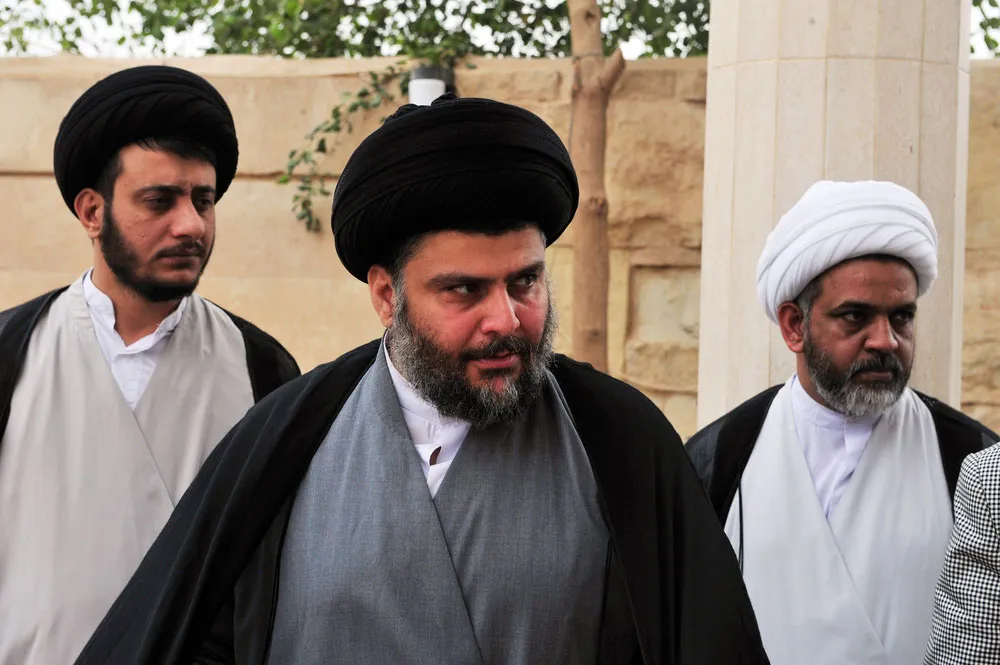In a country suffering from an excess of political rhetoric and a poverty of national trust, the Sadr Movement’s withdrawal from the upcoming elections has inaugurated a new phase of voluntary political retreat. This withdrawal was soon followed by the withdrawals of other leaders who once represented pillars in the post-2003 Iraqi state project. After the Sadr Movement, Mustafa al-Kadhimi announced his withdrawal, followed by Haider al-Abadi. The political scene is no longer merely a competition for seats but has transformed into a dispute over the legitimacy of the system itself: Who represents whom? Who governs whom? And why does a game continue that has neither rules nor a real audience?
The Sadr Movement, which is the largest popular force, had won the most numerous bloc in the 2021 elections. However, its complete withdrawal from parliament and then from political life has reshaped the equation once again. The movement chose to leave the playing field, refusing to remain in a political process it deems unreformable, and rejecting engagement in arrangements that would lead to a settlement with what it describes as “adversaries of the reform project.” This was not merely a protest withdrawal but a declaration of radical despair with the structure of the political process as it stands.
This position was followed by the withdrawal of Mustafa al-Kadhimi, the former Prime Minister, who had bet on establishing a national civilian alliance capable of breaking the duality between the Coordination Framework and the Sadr Movement. However, this project’s failure to gain traction, in addition to regional pressures, pushed al-Kadhimi to quietly leave the arena.
Haider al-Abadi’s withdrawal was no less significant. The former Prime Minister, who achieved military victory over ISIS, could not achieve political victory over Shiite divisions. He attempted to present “Victory” as a third option, but political time had already divided the scene into two main axes: the first represented by the Coordination Framework forces, often viewed as close to Tehran, and the second embodied in the Sadr Movement, which chose to withdraw from the political process. This withdrawal came after a rupture with parties that had previously been united by a temporary convergence of visions and positions, before viewpoints diverged regarding the prospects of the political process and the possibility of reforming it from within. Thus, the centrist space that could have formed a bridge between the two directions was closed, and civil and reform forces found themselves besieged without a clear political horizon.
These successive withdrawals do not merely signify the loss of certain names but reveal a deeper crisis in the structure of the Iraqi political system: a crisis of representation, legitimacy, and trust. If elections are the means of peaceful change, what is the meaning of elections from which reform forces withdraw? And if politics is the art of the possible, how is it possible to remain in an arena with no rules other than numerical dominance, interest-based bargaining, and sectarian quotas?
On another front, the Sunni component is experiencing internal intersections that further complicate the scene. While political meetings are taking place in Turkey aimed at building a unified Sunni alliance, real concerns arise that these meetings might transform into external empowerment that weakens the concept of national sovereignty. Instead of producing unity in the Sunni political position, these meetings might deepen the gap between Baghdad and the western provinces, returning us to the game of regional axes, where forces seek external support instead of internal consensus.
In contrast, the Kurdish partner appeared more inclined to rearrange its internal cards than to engage in broad national projects. While the Kurdish house is experiencing a state of sharp polarization between the Kurdistan Democratic Party and the Patriotic Union, Baghdad’s priorities are declining in both parties’ calculations, replaced by files such as power-sharing within the region, financial and economic positioning, and determining influence in areas like Kirkuk and Nineveh.
The Democratic Party, which lost some of its cards after the Federal Court’s decision regarding the Oil and Gas Law, has become more careful about negotiating according to the principle of “constitutional rights” rather than political partnership. Meanwhile, the Patriotic Union attempts to maintain its relations with Baghdad as a balancing party, investing in its alliances with the Coordination Framework forces.
With the escalation of the financial crisis and the recurrence of salary crises, it appears that the Kurdish partner is moving according to a realistic rather than strategic approach, betting on the results of the upcoming elections to modify negotiation terms, not to present a comprehensive national vision. This makes Kurdish alliances closer to “moving calculations” than “partnership constants.”
As for the Sadr Movement, even if it has withdrawn, no one believes it is absent. The movement possesses a massive popular structure, unique mobilization capacity, and popular momentum that no other bloc possesses. Its withdrawal does not mean its death but resembles the withdrawal of a strong player to outside the field to monitor his opponents and regain the initiative at a moment he chooses, not his opponents.
Thus, Iraq today appears as it approaches elections that may be conducted in the absence of the most prominent representatives of the reform project and the civilian state. What looms on the horizon is not democratic competition as much as it is a redistribution of power shares within a closed circle. But the danger is that the Iraqi street, which has been patient for a long time, may not accept being excluded twice: once when its voice was betrayed, and once when its choices were absent. Then the squares may return again.
Will the political process move toward a moment of real review, or will the mutual reluctance between the public and the system lead the country to an incalculable explosion?
* This article was first published in Arabic and later translated into English for KfutureMedia.


